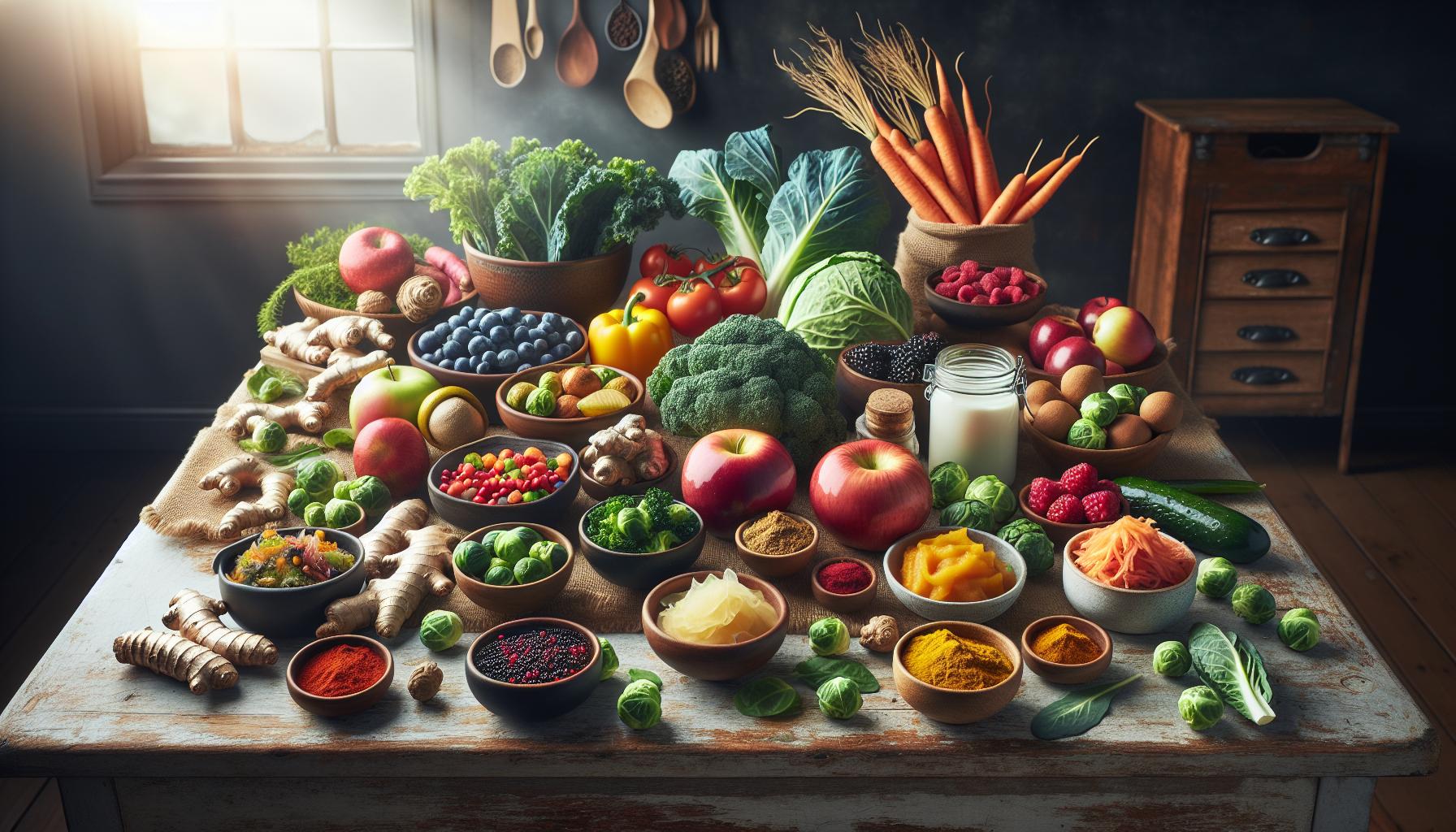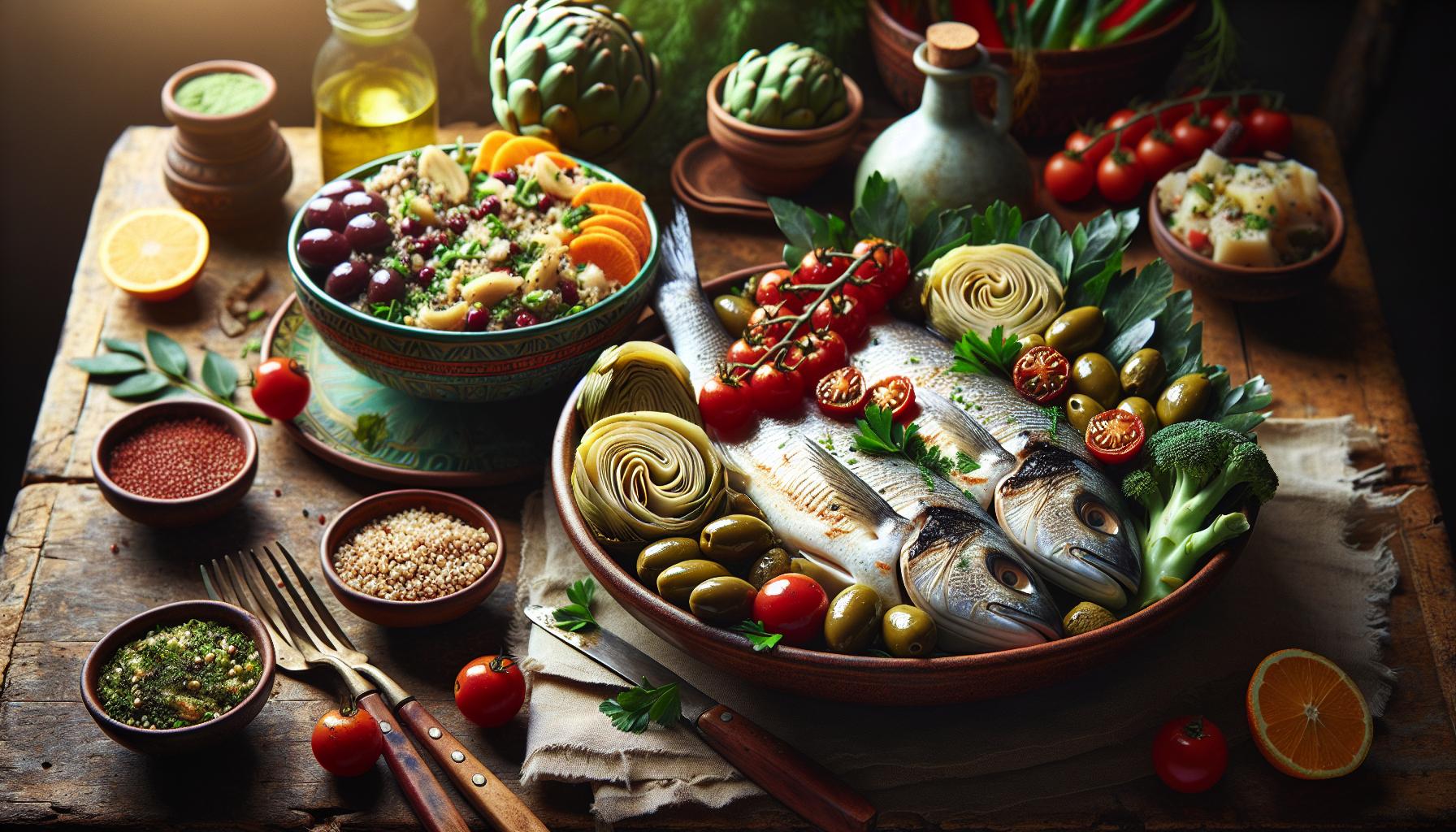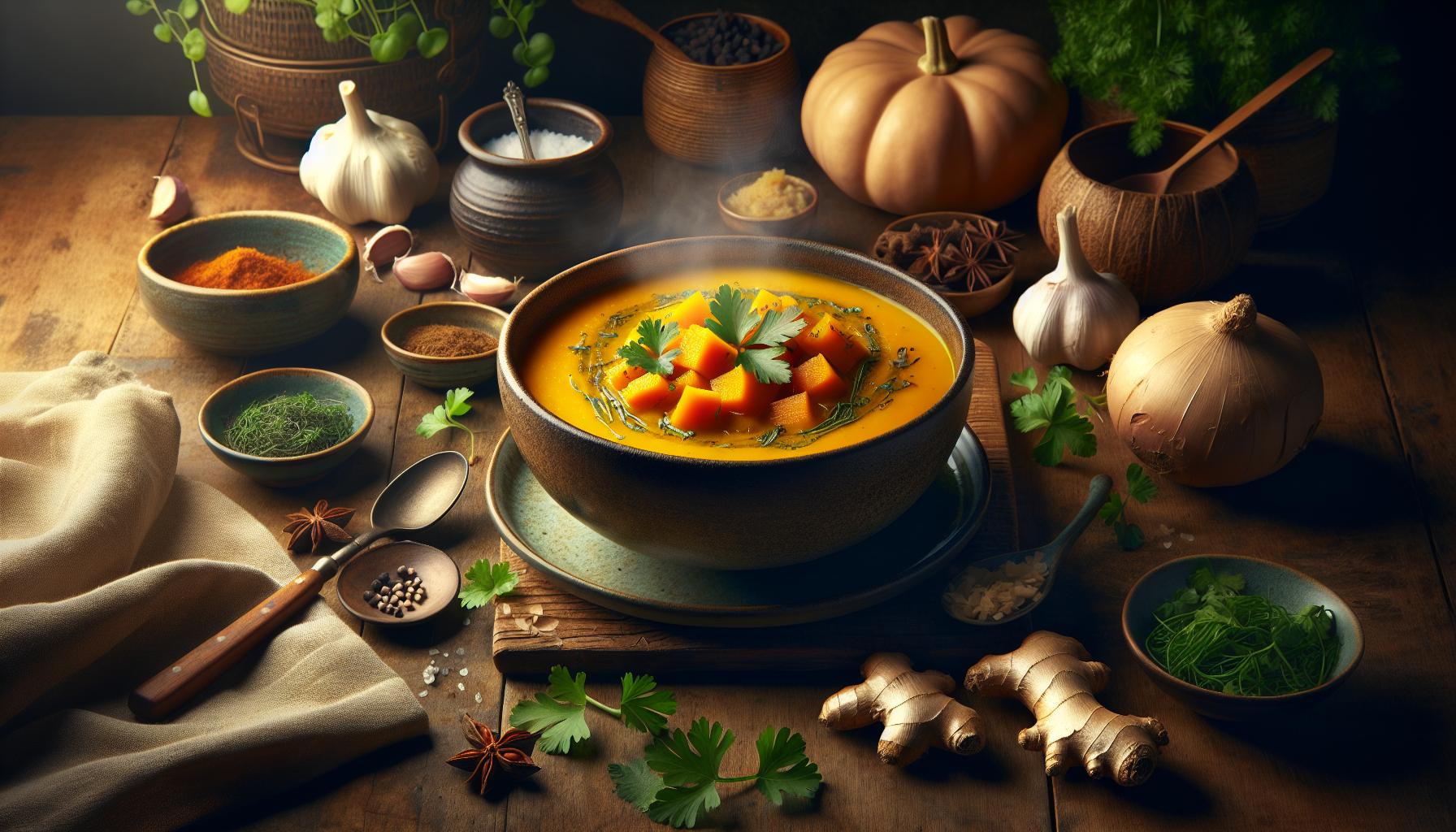A happy gut leads to a happy life and what better way to nurture those beneficial bacteria than with delicious gut healthy dinner recipes? Whether dealing with digestive issues or simply wanting to boost overall wellness these gut healthy dinner recipes will make both taste buds and gut microbes dance with joy.
From fiber-rich grain bowls to probiotic-packed fermented dishes modern science has shown that gut health impacts everything from mood to immune function. The good news? Creating gut-friendly meals doesn’t mean sacrificing flavor or spending hours in the kitchen. These gut healthy dinner recipes combine wholesome ingredients like leafy greens whole grains and fermented foods into quick satisfying dinners that’ll keep the digestive system running smoothly and efficiently.
Gut Healthy Dinner Recipes
A healthy gut microbiome contains trillions of beneficial bacteria that support essential bodily functions. These microorganisms play a vital role in digesting food, absorbing nutrients, regulating metabolism, and producing key vitamins like B12 and K.
Research links gut health to multiple aspects of wellness:
| Health Aspect | Impact of Gut Health |
|---|---|
| Immune System | 70% of immune cells reside in gut |
| Mental Health | 90% of serotonin produced in gut |
| Inflammation | Balanced microbiome reduces inflammatory markers |
| Nutrient Absorption | Healthy gut absorbs 90% of nutrients |
Key dietary components that support gut health include:
- Fiber-rich foods feed beneficial bacteria (legumes, whole grains, vegetables)
- Fermented ingredients provide live probiotics (kimchi, sauerkraut, miso)
- Prebiotic foods nourish existing gut bacteria (garlic, onions, asparagus)
- Anti-inflammatory ingredients reduce gut irritation (turmeric, ginger, olive oil)
- Polyphenol-rich foods support microbiome diversity (berries, dark chocolate, green tea)
The modern Western diet often lacks these gut-supporting elements:
- Processed foods disrupt microbial balance
- Added sugars feed harmful bacteria
- Artificial additives damage beneficial microbes
- Refined grains lack essential fiber
- Industrial seed oils increase inflammation
- Balance blood sugar levels
- Reduce digestive discomfort
- Support regular elimination
- Enhance nutrient absorption
- Strengthen immune function
Key Ingredients That Support Digestive Health

Supporting gut health requires specific ingredients that nourish beneficial bacteria and promote optimal digestion. These key components work together to create a balanced microbiome and enhance nutrient absorption.
Fiber-Rich Foods
Fiber serves as essential fuel for beneficial gut bacteria, promoting regular digestion and bowel movements. Vegetables like artichokes, Brussels sprouts, sweet potatoes contain soluble fiber that feeds healthy gut microbes. Whole grains including quinoa, brown rice, oats provide insoluble fiber for improved digestive transit. Legumes such as lentils, chickpeas, black beans deliver both types of fiber while adding plant-based protein. Fresh fruits like apples, pears, berries contribute pectin and other prebiotic fibers that support microbial diversity.
Fermented Foods
Fermented ingredients introduce live beneficial bacteria directly into the digestive system. Traditional options like sauerkraut, kimchi, miso paste contain diverse probiotic strains that enhance gut flora. Kefir, kombucha, yogurt deliver active cultures alongside beneficial compounds that strengthen the intestinal barrier. Tempeh, natto, pickled vegetables offer both probiotics and fiber for optimal digestive support. These foods increase the population of helpful microorganisms while reducing harmful bacteria.
Anti-Inflammatory Ingredients
Anti-inflammatory foods help reduce digestive stress and support gut healing. Leafy greens including spinach, kale, Swiss chard contain antioxidants that combat intestinal inflammation. Omega-3 rich foods such as salmon, sardines, mackerel help balance inflammatory responses. Turmeric, ginger, garlic provide natural compounds that soothe digestive tissues. Colorful vegetables like bell peppers, carrots, purple cabbage deliver polyphenols that protect gut cells from oxidative damage. These ingredients maintain intestinal integrity while supporting optimal digestive function.
Quick and Easy Gut-Healthy Dinner Ideas

These nutrient-rich dinner recipes combine gut-supporting ingredients with simple preparation methods, making them perfect for busy weeknights. Each recipe features anti-inflammatory components paired with probiotic-rich elements to enhance digestive health.
One-Pan Mediterranean Fish
A Mediterranean-style fish dinner incorporates omega-3 rich seafood with fiber-packed vegetables. The recipe combines wild-caught white fish with cherry tomatoes, kalamata olives, artichoke hearts, garlic, lemon, and fresh herbs. The cooking process takes 20 minutes in a single pan at 400°F (204°C). Adding prebiotic-rich ingredients like onions creates a flavorful base that supports beneficial gut bacteria. The dish provides:
| Nutrient | Amount per Serving |
|---|---|
| Protein | 28g |
| Fiber | 7g |
| Omega-3s | 1,200mg |
Probiotic-Rich Buddha Bowls
Buddha bowls merge fermented foods with colorful vegetables to create a balanced gut-healthy meal. The base combines quinoa or brown rice with sautéed leafy greens such as kale or Swiss chard. Topping options include:
- Fermented vegetables: kimchi, sauerkraut, pickled carrots
- Plant proteins: tempeh, lentils, chickpeas
- Raw vegetables: shredded purple cabbage, grated carrots, microgreens
- Probiotic additions: miso dressing, coconut kefir sauce
| Nutrient | Amount per Serving |
|---|---|
| Fiber | 12g |
| Protein | 18g |
| Probiotics | 1 billion CFU |
Comforting Gut-Healing Soups and Stews

Nourishing soups and stews create an ideal environment for gut healing through easily digestible nutrients in liquid form. These warming dishes combine gut-supportive ingredients with gentle cooking methods to maximize nutrient absorption.
Bone Broth Based Recipes
Bone broth serves as a therapeutic base for gut-healing soups due to its high collagen and amino acid content. Classic chicken soup incorporates anti-inflammatory turmeric root, ginger, and garlic with bone broth for immune support. Asian-inspired pho combines rice noodles, star anise, and cilantro with beef bone broth to create a mineral-rich meal. Tom kha gai features coconut milk, lemongrass, and mushrooms in chicken bone broth for digestive comfort. These broths simmer with vegetables like carrots, celery, and onions to extract maximum nutrients while creating flavorful bases for proteins such as grass-fed beef, organic chicken, or wild-caught fish.
Vegetable-Forward Options
Plant-based soups deliver prebiotic fiber and polyphenols that nourish beneficial gut bacteria. Butternut squash soup blends roasted squash with coconut milk, ginger, and warming spices for easy digestion. Hearty lentil stew combines red lentils, kale, and anti-inflammatory turmeric in a tomato base. Miso soup incorporates fermented paste with seaweed, tofu, and mushrooms for probiotic benefits. These recipes feature fiber-rich vegetables like sweet potatoes, carrots, and leafy greens simmered with herbs such as thyme, rosemary, and bay leaves to create satisfying meat-free options.
Make-Ahead Gut-Friendly Dinner Recipes
Preparing gut-healthy meals in advance saves time while maintaining nutritional benefits. These make-ahead recipes retain their probiotic properties through proper preparation techniques.
Meal Prep Tips
- Batch cook fiber-rich grains like quinoa brown rice or millet in bone broth for enhanced nutrition
- Roast seasonal vegetables with anti-inflammatory herbs such as turmeric ginger rosemary
- Prepare probiotic-rich dressings combining apple cider vinegar miso paste olive oil
- Portion proteins including wild-caught fish grass-fed beef tempeh into individual containers
- Chop sturdy vegetables like carrots cabbage beets in advance storing them in airtight containers
- Mix dry spice blends featuring gut-healing ingredients such as cumin coriander fennel
- Create freezer-friendly bone broth portions in silicon molds for quick soup bases
- Ferment vegetables 3-5 days before meal prep day to ensure active probiotics
- Store fermented foods in glass containers with tight-fitting lids up to 2 months
- Keep prepped vegetables in glass containers with paper towels 5-7 days
- Freeze cooked grains in portion-sized containers up to 3 months
- Refrigerate prepared proteins in airtight containers 3-4 days
- Store homemade dressings in mason jars 7-10 days
- Place chopped herbs in glass jars with water 1-2 weeks
- Maintain bone broth in freezer-safe containers 6 months
- Keep prepared sauces in glass bottles 5-7 days refrigerated
- Store roasted vegetables in compartmentalized containers 4-5 days
How to Adapt Your Favorite Recipes for Better Gut Health
Converting traditional recipes into gut-friendly versions requires strategic ingredient swaps. Here’s how to transform common dishes:
Grain-Based Dishes
- Replace refined flour with almond flour sprouted grains or coconut flour
- Swap white rice for quinoa brown rice or cauliflower rice
- Use zucchini noodles or shiratake noodles instead of regular pasta
Protein Preparations
- Add bone broth when cooking meats to increase gelatin content
- Include fermented marinades like miso or kefir for tenderizing
- Incorporate collagen rich cuts such as chuck roast or chicken thighs
Dairy Modifications
- Substitute regular milk with coconut milk kefir or almond milk
- Replace cream cheese with cashew cheese or coconut yogurt
- Use nutritional yeast instead of processed cheese
Sauce Transformations
- Create probiotic rich dressings using apple cider vinegar
- Thicken sauces with pureed vegetables instead of cornstarch
- Add miso paste or coconut aminos for umami flavor
Vegetable Enhancements
- Roast vegetables with prebiotic rich garlic onions leeks
- Include fermented vegetables as side dishes or garnishes
- Steam or sauté greens in bone broth for added nutrients
- Add turmeric ginger cinnamon for anti inflammatory benefits
- Include caraway fennel seeds to aid digestion
- Use fresh herbs like oregano thyme basil for antimicrobial properties
These modifications maintain familiar flavors while incorporating gut supporting ingredients. Each adaptation adds beneficial compounds that support digestive health microbiome diversity.
Perfect Marriage of Flavor And Nutrition
Creating gut healthy dinner recipes doesn’t have to be complicated or time-consuming. With the right ingredients and simple preparation methods anyone can prepare delicious meals that support digestive wellness. From quick one-pan dishes to comforting soups these recipes prove that nutritious eating can be both convenient and enjoyable.
The key is focusing on whole unprocessed ingredients while incorporating plenty of fiber-rich vegetables fermented foods and anti-inflammatory components. By making these mindful choices at dinner time it’s possible to support overall health improve digestion and maintain a thriving gut microbiome for years to come.
Try these recipes and adaptations to discover just how satisfying and flavorful gut-healthy cooking can be. Your digestive system will thank you.

